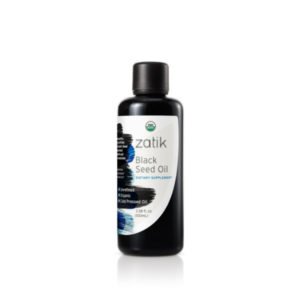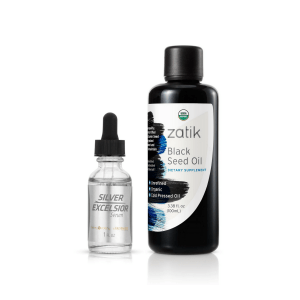Sharing is caring!
Pathogenic priming aka “disease enhancement,” is a biological process. In this process, specific antigen proteins in a pathogen prime immune system cells. Once the cells are primed, they produce a defensive inflammatory response against pathogenic antigens.
Understanding Pathogenic Priming
Priming is the initial contact of an antigen-specific T helper cell with an antigen. The interaction of the helper-T cells with B cells is essential for the development of antibodies.
“The priming of naïve CD8 T cells generates a wide variety of effector cell types depending on the nature of signal they receive. They may either generate cytotoxic T cells having the capability to kill the pathogen-infected cells or secrete cytokines that direct the target cells to bring about a particular response,” says Dr. Siddhartha Sankar Ghosh, Department of Biosciences and Bioengineering, IIT Guwahati.
Autoimmunity Factor
It’s been postulated that patients suffering from autoimmune diseases and other auto-inflammatory conditions are more at risk for pathogenic priming phenomena. Dr. Ranjit Mohan, Consultant – Internal Medicine, Infectious Diseases, Manipal Hospitals Old Airport Road, Bengaluru notes:
However, when the organism is exposed to an actual infection by the pathogen, or a vaccine containing the proteins of the pathogen, instead of a defensive immune response, a hyper-inflammatory state which includes autoimmune cellular damage results.
Currently, the immunogenicity of a molecule is tested by measuring the antibodies specifically generated against any products. Scientists conduct assays to determine the presence and amount of substances. To date, a single assay can’t provide all the necessary information about the immunogenic profile of a biotherapeutic product.
The current methods for the detection of antibodies include screening based on their ability to recognize relevant antigenic determinants in the therapeutic proteins. These assays can detect polyclonal antibodies in patients’ samples, which makes the characterization of the antibody response challenging. Polyclonal antibodies are created in the body by B Cells to act against certain antigens in the body. Antigens are the proteins that are found on the surface of the pathogen.
Impact On COVID Vaccines
The SARS-CoV-2 virus possesses numerous proteins. These proteins act like antigen sources during infection, leading to autoimmunity. The immune system presents these proteins as “normal” human proteins, a phenomenon called biomimicry.
Biomimicry between and among proteins from pathogens, infections or vaccines, can conflate the signaling by creating a population of memory-B cells. This is especially the case when the reaction switches from Th1 towards a Th2 response. TH1 helper cells give immune responses against intracellular parasites like bacteria and viruses while TH2 helper cells give immune responses against extracellular parasites.
On its website, AstraZeneca has indicated that immunogenicity “is a more complex measure of how well a vaccine works and measures the type of immune responses that the vaccine generates and their magnitude over time.” The cytokine storm following the COVID-19 infections in people might reduce the efficacy of the COVID-19 vaccines or in some instances, trigger a hyper-activated immune response upon vaccination. The onset of an autoimmune disorder will make it difficult for our body to fight against the virus more effectively. Also, the onset of autoimmunity will bring secondary concerns regarding our health.
“While there have been speculations that certain COVID-19 viral proteins can cause pathogenic priming in humans, there is still no definitive evidence that any of available COVID-19 vaccines can induce such phenomena,” says Dr. Mohan.
Furthermore, the pathogenic priming will not allow the proper elicitation of the immune system upon vaccination, thereby resulting in the reduction of efficacy of the vaccines. However, the COVID-19 vaccines went through multiple clinical trials to determine their safety and efficacy before being authorized for emergency use by regulators. Walter Orenstein, a professor at the Emory University School of Medicine in Atlanta, states that “thus far, there is no data supporting vaccination as a cause of vaccine-induced enhanced disease.”
SARS-CoV Connection
However, previous vaccines trialed for other coronaviruses showed evidence of pathogenic priming. The problem, highlighted in two studies, found that recombinant SARS spike-protein-based vaccines failed to provide protection from SARS-CoV infection.
The study also highlighted that the mice experienced increased immunopathology with eosinophilic infiltrates in their lungs. Similarly, ferrets previously vaccinated against SARS-CoV also developed a strong inflammatory response in liver tissue (hepatitis). Both studies suspected a “cellular immune response,” which is also referred to as “immune enhancement.”
Immunogenicity Matters
Autoimmunity can be a result of various reasons, including genetic predisposition, environmental factors (such as bacterial or parasitic infections), physical and environmental agents, hormonal imbalances, and host immune system dysregulation.
The pathogenic viruses, which are proposed to trigger and initiate autoimmune disorders include Parvovirus B19, Epstein-Barr-virus (EBV), Cytomegalovirus (CMV), Herpes virus-6, HTLV-1, Hepatitis A and C virus, and Rubella virus. Common autoimmune disorders include rheumatoid arthritis, multiple sclerosis, systemic lupus erythematosus, Sjogren’s syndrome, primary biliary cholangitis, and autoimmune hepatitis,.
“Molecular mimicry and bystander effect (infection leads to activation of antigen-presenting cells that activate pre-primed auto-reactive T cells, thereby leading to the production of pro-inflammatory mediators) are the two mechanisms by which these viruses are capable to induce autoimmunity. Alternative suggested mechanisms include epitope spreading as well as presentation of cryptic antigens,” says Dr. Ghosh.
Autoimmunity Matters
Furthermore, in an online pre-published study from Germany, the authors studied prospectively a group of 22 patients for the possible role of autoimmunity in SARS-CoV-2 -associated respiratory failure. The authors suggest that SARS-CoV-2 infection might trigger or simulate a form of organ-specific autoimmunity in predisposed patients. This is based on serological, radiological, and histo-morphological similarities between COVID-19-associated ARDS and exacerbation of connective tissue disease-induced interstitial lung disease.
In a similar retrospective study from China of 21 patients with critical SARS-CoV-2 pneumonia, the authors show a prevalence of between 20 and 50 percent of autoimmune disease-related autoantibodies, suggesting the rationale for immunosuppression in such cases of COVID-19.
Dr. Naveen Thacker, executive director of the International Pediatric Association says “some viruses have analogous epitopes that can form autoantibodies and so far we have not seen this with any COVID vaccines except with viral vector vaccines, but these are tricky issues and need to be examined closely to gather evidence to be proved.”
Even as the pandemic continues, it is also worth noting that the impact of pathogenic priming may not be felt by most people. However, it is important to know how it can impact treatment for the same.
-
Sale Product on sale
 Zatik Black Cumin Seed Oil$26.00 – $70.00 — or subscribe and save 5%Rated 5.00 out of 5 based on 5 customer ratings
Zatik Black Cumin Seed Oil$26.00 – $70.00 — or subscribe and save 5%Rated 5.00 out of 5 based on 5 customer ratings -
Sale Product on sale
 Silver + Black Cumin Immunity Bundle
Silver + Black Cumin Immunity Bundle$120.69Original price was: $120.69.$115.52Current price is: $115.52. — or$107.99Original price was: $107.99.$99.99Current price is: $99.99. / day
- Tags: autoimmune, coronavirus, disease, immune cells, pathogens



